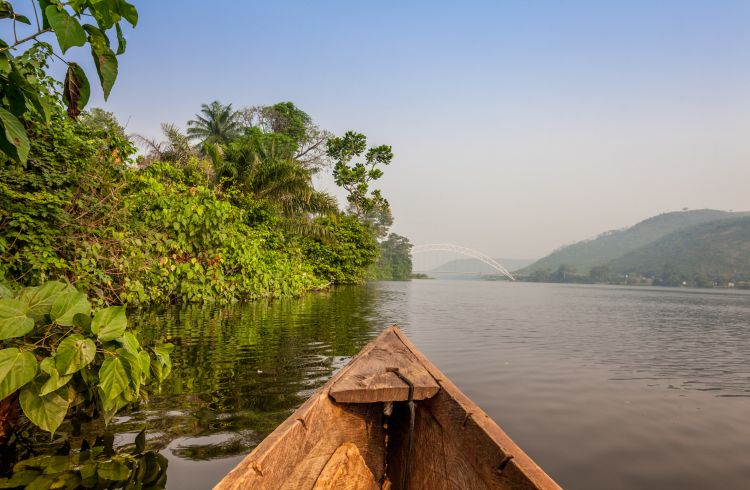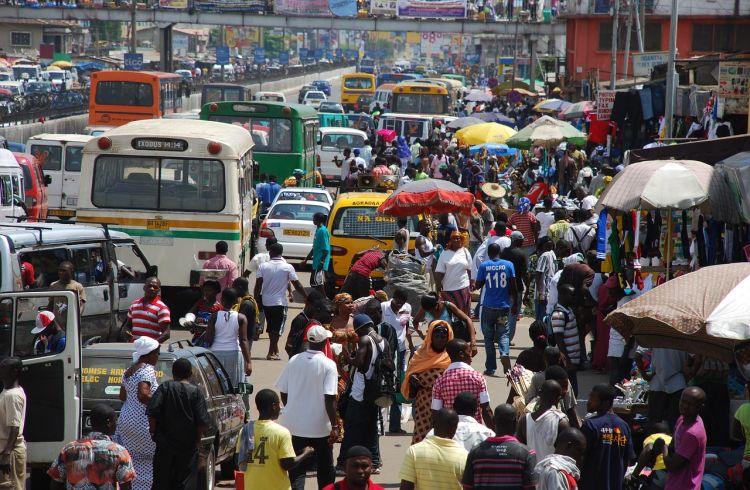How to Stay Healthy While Traveling Around Ghana
Most travelers have an illness free trip to Ghana, but there are a few diseases and health concerns to be aware of. Here are our tips to stay healthy while on the road.
 Photo © GettyImages/Jacek Sopotnicki
Photo © GettyImages/Jacek Sopotnicki
- Vaccinations for Ghana
- Medical Treatment in Ghana
- Mosquito-Borne Diseases
- Meningitis
- HIV/AIDS
- Can I Drink Tap Water in Ghana?
Vaccinations for Ghana
The yellow fever vaccination is mandatory before traveling to Ghana and check that your routine shots are up to date. The following are recommended before you travel:
- Typhoid
- Hepatitis A
Medical treatment in Ghana
Medical treatment varies throughout Ghana, with most services operating in the capital, Accra and other major towns. The further you get from urban areas, medical services are limited to health posts or nothing at all. Emergency medical treatment is very limited so make sure your travel insurance policy has extensive medical cover including medical evacuation.
Bring a travel first aid kit with you and also any medications you may need for the whole trip along with a doctor's letter outlining their use, dosage etc. The medications in Ghana may not be of the same dosage, quality or even counterfeit.
Mosquito-borne diseases
Like a lot of African countries, Ghana has its share of mosquitos. Aside from vaccination, covering up is vital to avoid being bitten. Apply a strong insect repellent and wear light long-sleeved clothing.
Mosquito nets are cheap, so buy one or two. Nothing worse than being bitten alive while you sleep. If you do at any point, start to feel unwell it's important to seek medical treatment immediately as several mosquito borne diseases share similar symptoms.
Yellow fever
Ghana is listed by the World Health Organisation (WHO) as endemic for yellow fever. A valid Yellow Fever Vaccination Certificate is required for entry into Ghana.
Some airlines may require passengers to present a valid Yellow Fever Vaccination Certificate before being allowed to board flights out of the country. If in doubt, check with your airline.
If you have visited Ghana in the last six days prior to your date of return to your home country, customs officials will ask you to present a valid Yellow Fever vaccination certificate on entry.
Yellow Fever jabs are vital before entering West Africa, so organize to get your vaccination several weeks prior to departure.
Dengue fever
Dengue Fever is present in Ghana and with no vaccination available, travelers need to take precautions to avoid being bitten.
Malaria
Malaria is common in West African countries, including Ghana.
Consider having vaccinations before traveling, and taking prophylaxis against malaria.
See your doctor before you travel, they will prescribe the best malaria medication for the location you are traveling to.
Lymphatic filariasis
Also known as Elephantiasis, this mosquito borne parasitic disease is prevalent in Ghana. Once bitten, the parasitic worm enters your lymphatic system where it matures over a year and then remains in your body for up to six years. Severe swelling can occur in the legs, arms, genitals and chest areas (hence its other name, Elephantiasis). There is no vaccination available so you will need to take steps to avoid being bitten.
Zika virus
Zika has been reported in Ghana and with no vaccination available, bite prevention is your only option.
Meningitis
There is a high risk of meningitis in the north of Ghana (near the border with Burkina Faso) which is a part of the Meningitis belt of Africa.
The "Meningitis Belt" is an area that stretches from Senegal in the west to Ethiopia in the east, with an estimated total population of ~300 million people.
A vaccine is available for Meningitis types A, C, Y and W135.
While the risk to travelers is generally low, vaccination is recommended for travel to the "meningitis belt" during the dry season, for travel to locations with an active epidemic, or for prolonged travel when contact with the local population in endemic areas is expected.
HIV/AIDS
Although the AIDS/HIV rate is lower than in other sub-Saharan African countries, the Ghana AIDS Commission reported an increase of ~80% of new infection cases in 2017 despite efforts by the Ghanaian government to reduce the infection rate. So always practice safe sex by using protection.
Can I drink tap water in Ghana?
Traveler's diarrhea can strike any traveler so it's important to take precautions with food and water. Observing good personal hygiene is also vital to staving off spending time stuck on the toilet.
Unfortunately, drinking the local tap water in Ghana is a no-go unless it's been boiled or treated. Avoid ice cubes in drinks and salads as you don't know what water source may have been used.
Check out our article on avoiding sickness while on the road for more information
Related articles
Simple and flexible travel insurance
You can buy at home or while traveling, and claim online from anywhere in the world. With 150+ adventure activities covered and 24/7 emergency assistance.
Get a quote


No Comments